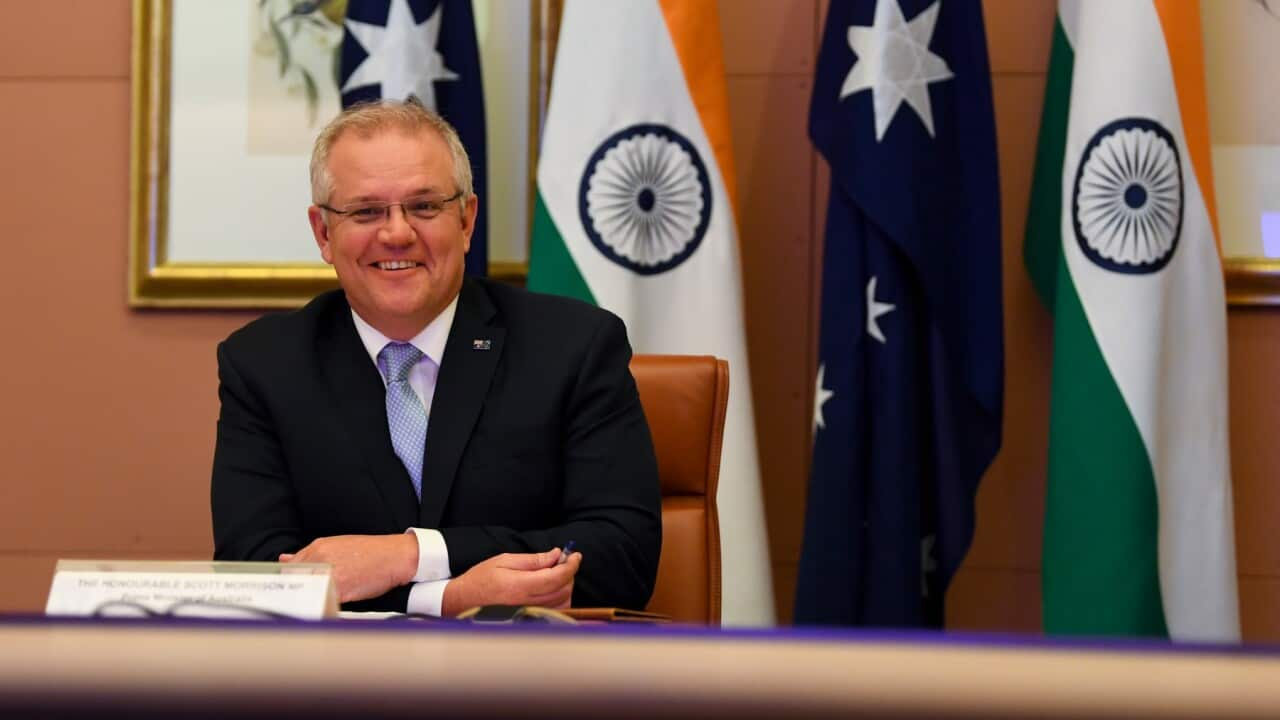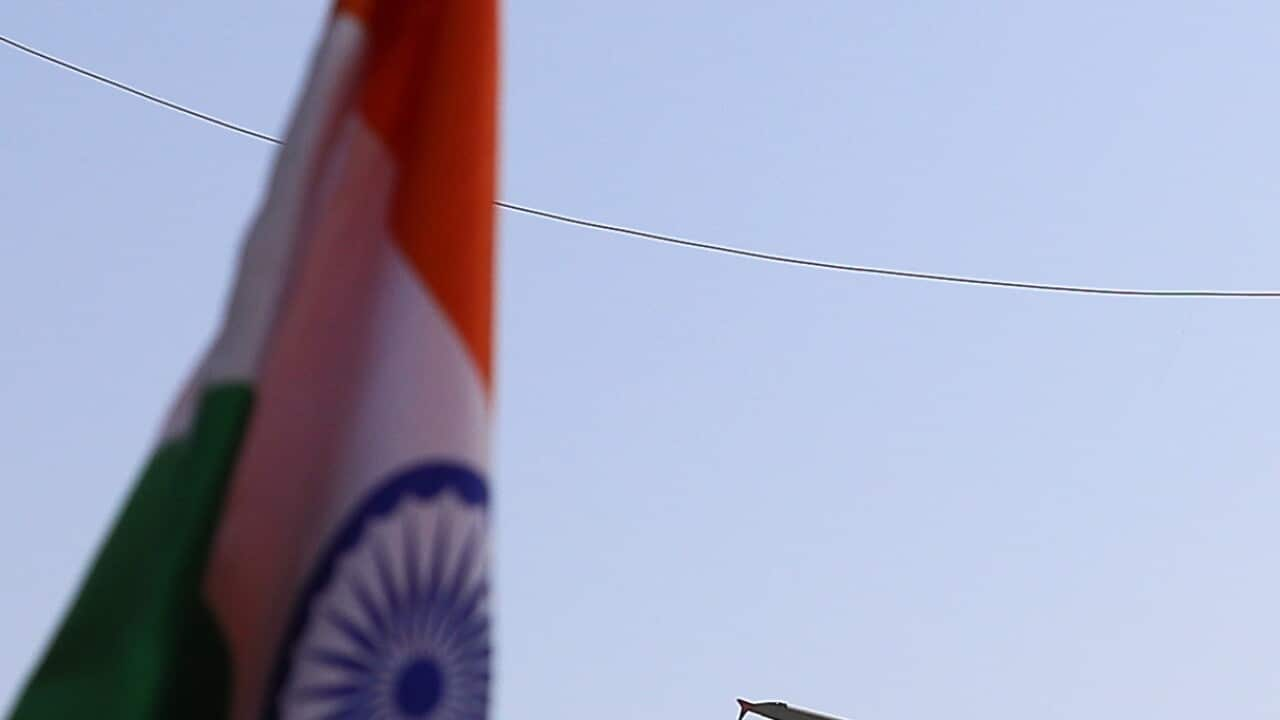Highlights
- Australia is looking towards India after China's ban on $20bn of Australian exports.
- Trade Minister Dan Tehan says strengthening trade relationship with India will be mutually beneficial.
- The two countries have been in discussions over a free trade agreement for nearly nine years.
After China shut the door on $20bn of Australian exports, a free trade agreement with India could return as a point of convergence on the spectrum of India-Australia relationship.
Mr Tehan said strengthening the trading relationship with India will be "mutually beneficial".
"The Australian Government is actively working under the comprehensive strategic partnership to support the goal of deepening trade and investment with India. Re-engaging on a Comprehensive Economic Cooperation Agreement is in both countries' national interest," Mr Tehan told SBS Hindi.
China is Australia's largest trading partner. However, the Australia-China trade has taken a big hit in recent months due to deteriorating relations between the two countries after Australia supported the call for an international inquiry into China's handling of the coronavirus.
Some experts believe China's attitude towards Australia could bring India closer to the latter.
Natasha Jha Bhaskar, general manager at Newland Global Group - a Sydney-based corporate advisory firm specialising in the Australia-India space - says Mr Tehan's statement on free trade agreement is very opportune.
"[It] clearly shows that there is a renewed focus on building on the FTA negotiations which could actually provide significant growth and commercial benefit to exporters, investors and businesses on both sides," says Ms Bhaskar.
Listen to the full interview with Natasha Jha Bhaskar:
LISTEN TO

Hit by China's $20bn restrictions, Australia looks to bolster trade with India
SBS Hindi
04/01/202115:31
Australia and India have been discussing a Free Trade Agreement since 2011. However, despite nine rounds of talks, the two countries are yet to reach an agreement.
Ms Bhaskar says FTAs are a tight-rope walk between economic gains and managing national interests.
"The very understanding of economic integration itself is very diverse and complicated. So we have a dilemma where negotiating countries are at different levels of development with diverse and sometimes very divided interests and how do we really bring them to a common consensus on issues that can have a direct impact on individual countries' domestic enterprises' growth, employment and investment, and in turn also ensure mutual benefits for all," she says.

Australia's Prime Minister Scott Morrison and India's Prime Minister Narendra Modi (file pic) Source: (AAP Image/Mick Tsikas)
Dan Tehan, who has taken over as Trade Minister after the recent reshuffle in the federal cabinet, says he understands how important FTAs are for the Australian economy.
"International trade helps create jobs and drive economic growth, and the Morrison Government has focused on negotiating free trade agreements in the national interest. The proportion of Australian trade covered by free trade agreements is around 70 per cent, up from around 27 per cent in 2013," he says.
However, India has been apprehensive about an FTA with Australia.
Ms Bhaskar says India is branded as a protectionist economy, and that an inescapable fact is that any free trade agreement affects almost 60 per cent of India's population which is involved in occupations such as agriculture, dairy, automobile and textile.
"If we look at India's FTAs with RCEP nations, India suffers a trade deficit with 13 of the 15 countries. This shows how India has not been benefitted by the free trade agreements being a consumption-led economy. Every country takes decisions based on its domestic interests," she says.
"Australia needs to address India's concerns. There has to be a balance between goods and services. Mostly trade negotiations focus on goods, but India needs to focus on investment and services where India has a natural advantage," explains Ms Bhaskar.
She says Australia will have to find a way to distinguish itself from other countries in the way it approaches the Comprehensive Economic Cooperation Agreement apart from its diversification goals to export to other markets to counter the punitive Chinese bans on Australian products.







